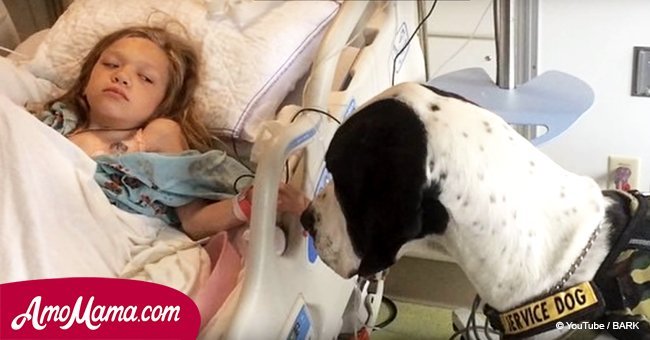
Dog helps girl with rare disorder to walk. Without it, Bella would be confined to a wheelchair
She gets to walk with the help of a dog.
Bella, an 11-year-old girl diagnosed with a rare genetic condition, is able to explore places because of George the great dane, as reported by Faith Tap.
Afflicted with Morquio Syndrome, Bella was expected to lose her ability to walk. As she gets older, her mobility becomes more and more impaired. Doctors could not find a cure.
Bella's supportive family then decided to get her a service dog. That's when she had George. She relies on George now to be able to walk. She holds on to him as she take her steps.
With George around, Bella would be confined to a wheelchair. George being her hero, Bella decided to honor him with the help of BarkPost.
A "Dog's Best Day" was organized in honor of the great dane. The company treated George with burgers and games on the snow.
Bella is eternally grateful to George for allowing her to enjoy daily walks. The pair are inseparable. They obviously adore each other. They have truly become best friends.
A recent study supports the power of the human-animal bond, reported PR News Wire.
Its findings revealed that dogs contribute to emotional and psychosocial well-being, in addition to the physical benefits of service dogs.
"Even though the benefits of service dogs for those with physical disabilities are well-recognized, the emotional and psychosocial effects are largely unknown," said Maggie O'Haire, assistant professor of human-animal interaction at Purdue's College of Veterinary Medicine.
O'Haire, who led the research project, added: "There is a wealth of positive anecdotal information but comparatively few-data driven scientific measures of how dogs affect their human companions' sense of well-being. We hope to fulfill the critical need for additional research on this topic."
The research was made possible with the help of Canine Assistants, a non-profit organization dedicated to education and placement of service dogs with children and adults who have physical disabilities or other special needs.
